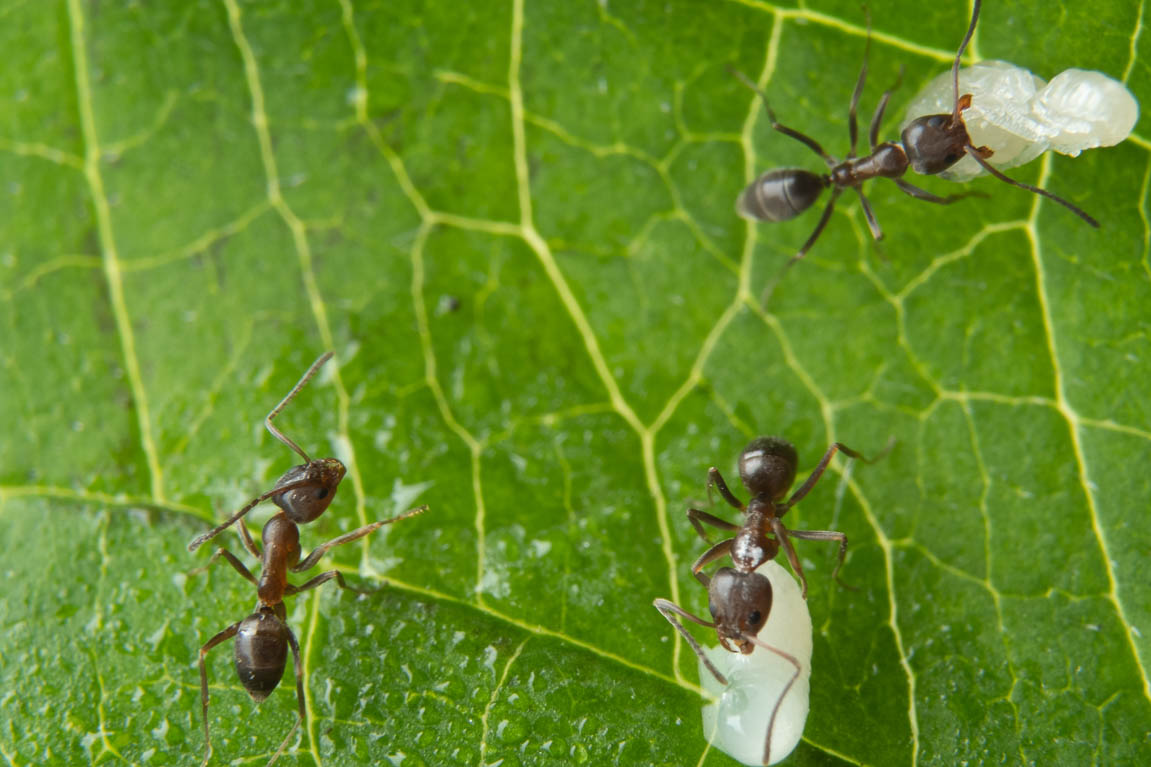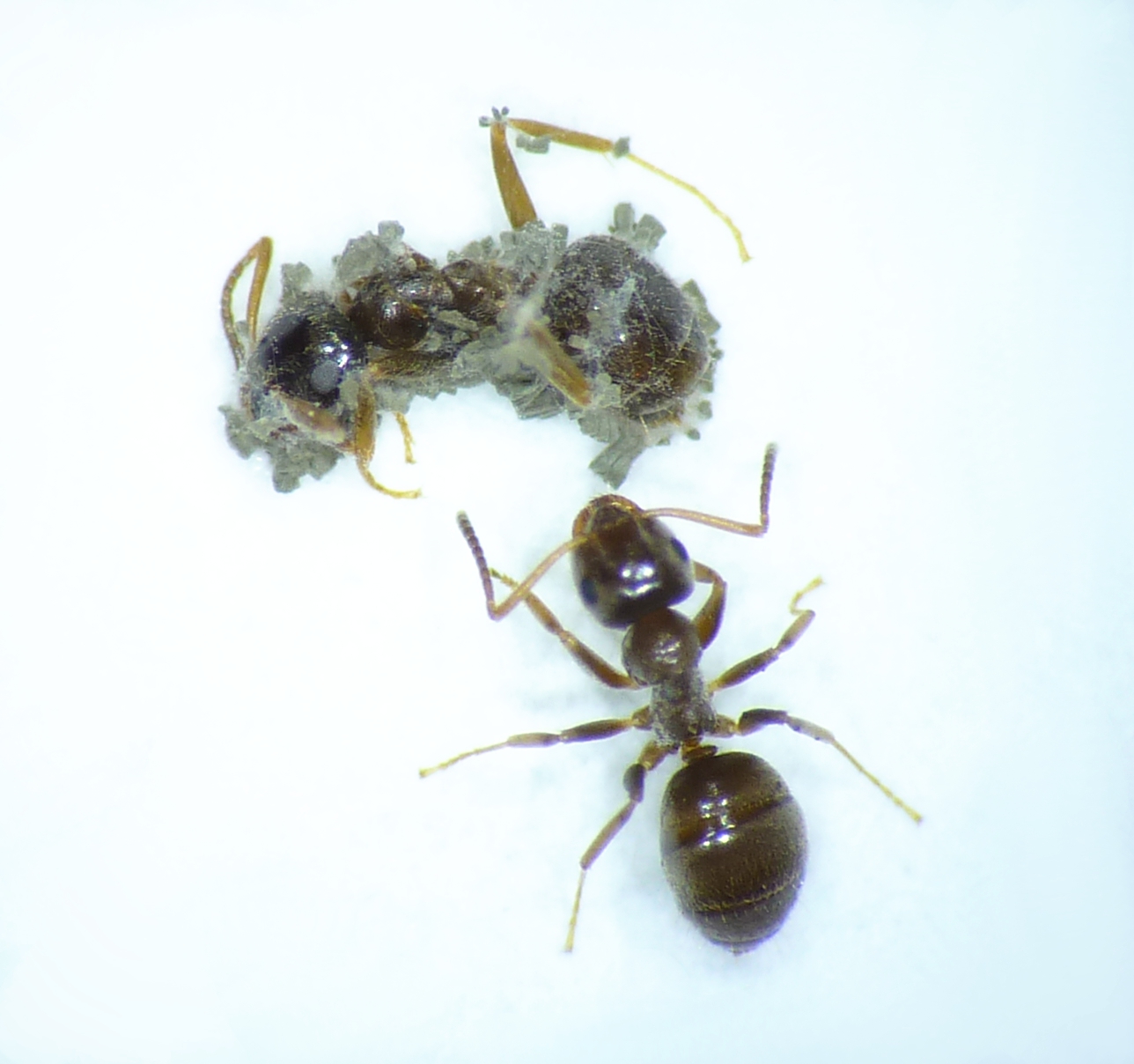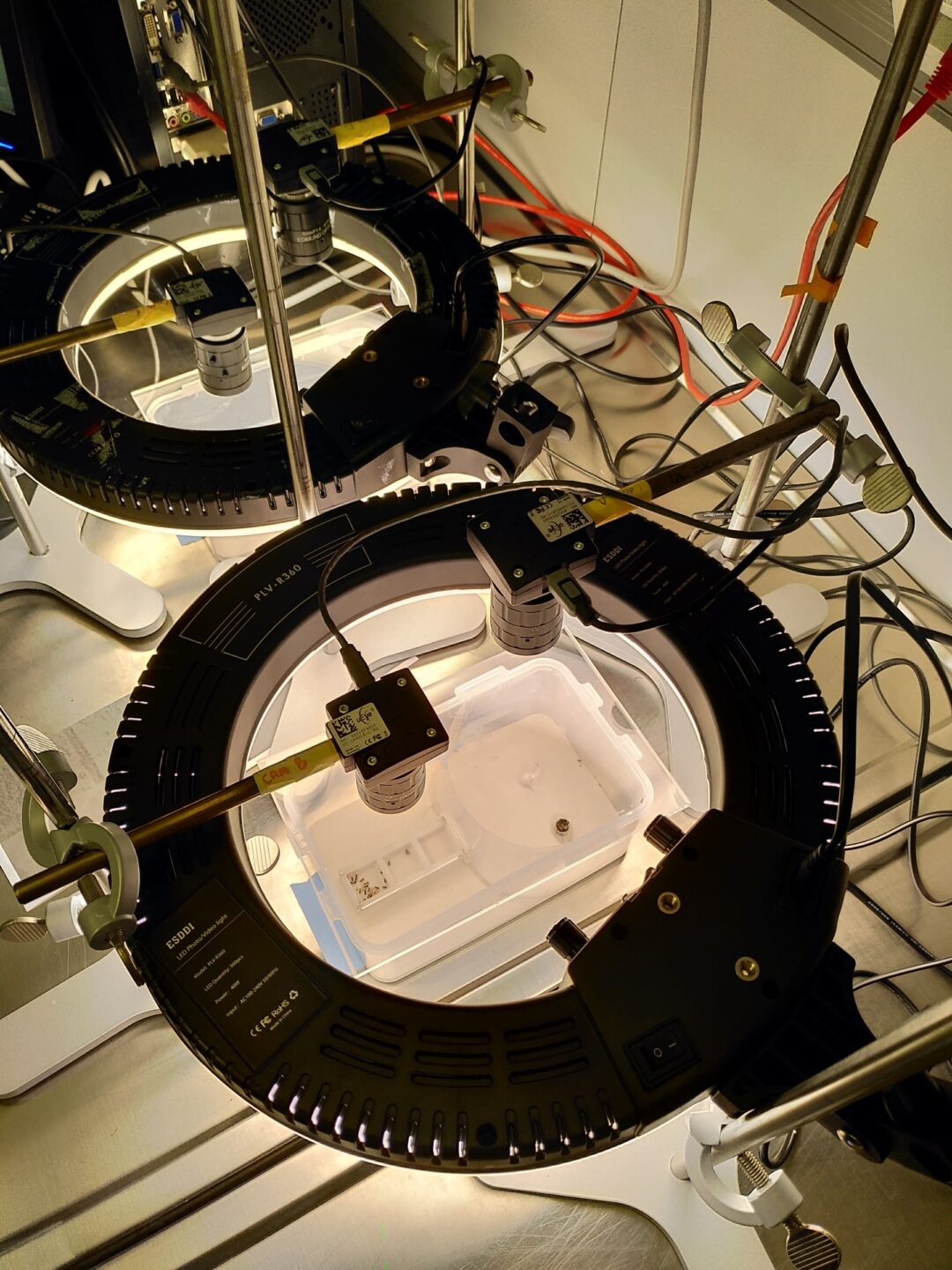February 2, 2023
Reducing their Natural Signals: How Sneaky Germs Hide from Ants
Pathogens are adapting to social health care measures by ants.
Not only humans are social, ants are too. Group members are taking care of sick ones by providing collective hygiene measures. This presents germs with a task. They must circumvent the immunity of an individual ant and avoid the group’s healthcare. A new study now published in Nature Ecology & Evolution reveals that germs develop a sneaky way to escape the ant colony’s defense systems by reducing their detection cues.
Pathogens are disease-causing organisms. By natural selection, they develop evading mechanisms to outsmart the host’s immune system and to get the upper hand. One way to support the immune system and fight back is medical intervention. However, this can lead to unwanted adaptions of pathogens as seen in antibiotic-resistant bacteria. Another strategy is social intervention. Some social groups like ants are trying to fight infection with “social immunity”, the collective hygiene and health care measures to avoid spreading throughout the community. If and how pathogens can respond to this kind of group behavior, is still unknown.
The latest study by Professor Sylvia Cremer and her research team at the Institute of Science and Technology Austria (ISTA) shows the extraordinary effects of these kinds of host-parasite interactions. Together, with chemical ecologists at the University of Würzburg in Germany, the scientists took a close look at social ants, to see how pathogenic fungi respond to their hosts’ social care intervention during infection. The results reveal that fungi reduce their chemical detection signals to outplay social immunity. The study is published today in Nature Ecology & Evolution.

More spores but less grooming
“Fungi infect the ants from the body surface and grow inside, but nestmates groom off many of the spores before they can even cause internal infection,” explains Barbara Milutinović, one of the lead authors, former postdoc in the Cremer Group and now Marie Curie Sklodowska Fellow at Ruđer Bošković Institute in Croatia. The scientists set up an experiment where Argentine ants (Linepithemahumile) were infected with pathogenic Metarhizium fungi either in the absence or presence of caregiving colony members. “We found that the fungi fundamentally changed in response to the ant workers’ caregiving,” Milutinović continues. Over ten infection cycles, fungi which experienced grooming nestmate ants boosted their spore production compared to fungi accompanied by only individual ants. “Producing more spores will help the fungus counteract the spore-removal by helping nestmates. Yet, we were surprised to see that the ants showed less grooming against the spores,” Sylvia Cremer adds. “This suggests, that the spores have become more difficult to detect by the ants.”

Fungi lose their typical chemical profile
To check why ant workers had difficulties sensing fungi and to analyze possible fungal detection cues, the scientists teamed up with a chemical ecologist from the University of Würzburg. Local Professor Thomas Schmitt explains: “The fungi, that adapted to social hosts were perceived less strongly, due to a strong reduction of a fungi-specific compound called ergosterol.” Ergosterol is an essential membrane compound, that all fungi have. By exposing the ants to pure fungal ergosterol or the slightly different non-fungal vertebrate equivalent, the researchers showed, that only the fungal compound induced intense grooming. Milutinović summarizes: “This demonstrates that fungal pathogens react to the presence of caregiving ants by reducing their characteristic fungal signals. They are no longer recognized as a disease threat and can escape the social immunity of the colony.”
The findings highlight the impact that social hosts have on their pathogens by group behaviors. “It’s fascinating how collective hygiene measures trigger evasion strategies in the pathogen. It would be interesting to see how the ant colony will react in turn. Maybe they become more sensitive in detecting lower and lower fungal cues,” Cremer concludes.

Publication:
M. Stock, B. Milutinović, M. Hoenigsberger, A. V. Grasse, F. Wiesenhofer, N. Kampleitner, M. Narasimhan, T. Schmitt, S. Cremer. 2023. Pathogen evasion of social immunity. Nat EcolEvol. DOI: 10.1038/s41559-023-01981-6
Funding information:
For this study, Sylvia Cremer obtained funding by the German Research Foundation (CR118/3-1) within the Framework of the Priority Program SPP 1399 and the European Research Council (ERC) under the European Union’s Horizon 2020 research and innovation Programme (No. 771402; EPIDEMICSonCHIP).
Information on animal studies:
Collection of the Argentine ant, an unprotected insect species, from the field was in compliance with international regulations, such as the Convention on Biological Diversity and the Nagoya Protocol on Access and Benefit Sharing. All experimental work followed European and Austrian law and institutional ethical guidelines.



